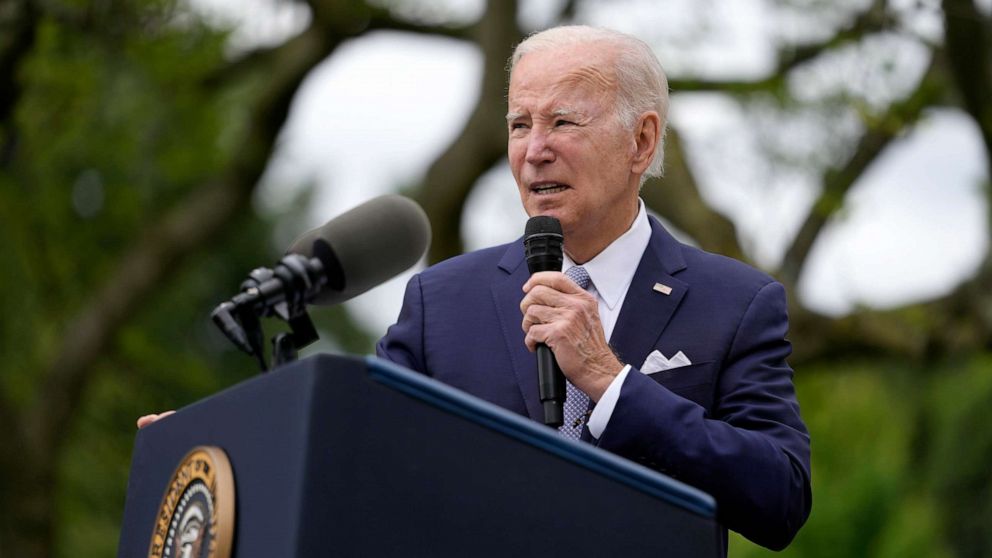Global Courant 2023-05-02 05:57:29
The U.S. is at risk of defaulting on its debts — for the first time in history — as early as June 1, Treasury Secretary Janet Yellen wrote in a letter to House Speaker Kevin McCarthy and other top lawmakers on Monday, urging Congress to “to act as quickly as possible.”
Yellen’s update further underlined both the stalemate between lawmakers and the White House, and the potential financial and political risks if the stalemate is not broken in the coming weeks.
“We have learned from previous debt limit deadlocks that waiting until the last minute to suspend or raise the debt limit can seriously damage business and consumer confidence, increase short-term borrowing costs for taxpayers, and negatively impact on the creditworthiness of the United States,” she wrote.
The debt limit should be raised or suspended “in a way that provides longer-term assurance that the government will continue to make its payments,” she wrote.
Yellen, relying on the most recent data, including federal tax receipts, wrote that she could not definitively warn when the so-called “X date” for default would begin.
“It is impossible to predict with certainty the exact date when the Treasury will be unable to pay the government’s bills, and I will continue to update Congress in the coming weeks,” she wrote.
The nonpartisan Congressional Budget Office estimated in a report in February that default could begin in July.
But a June 1 deadline would create new urgency for the world’s richest nation and the hub of the global economic system. Moreover, Congress has little procedural room for maneuver: the House alone has only 12 legislative days left in May and is in recess this week.
“The clock is ticking,” Rachel Snyderman, senior associate director of economic policy at the Bipartisan Policy Center, previously told ABC News.
The House Republican majority has said they will not raise the cap any further without a compromise from the Democrats on the federal government’s spending and budget — which President Joe Biden has rejected, saying the ceiling should be raised without commitment, as happened before.
The president called all four leaders of Congress Monday afternoon — Speaker McCarthy, House Minority Leader Hakeem Jeffries, Senate Majority Leader Chuck Schumer and Senate Majority Leader Mitch McConnell — and invited them to a May 9 meeting on the debt limit, the White House. said in a statement.
Speaker of the House Rep. Kevin McCarthy is followed by members of the media as he walks through the Capitol on April 26, 2023 in Washington, D.C.
Tasos Katopodis/Getty Images
“President Biden will emphasize the need for Congress to take action to prevent non-conditional default and invited the four leaders to the White House to discuss the urgency of preventing default, as well as how to initiate a separate process to review the budget and to address fiscal year 2024 appropriations. said a White House official.
Reactions from the four lawmakers quickly diverged along partisan lines, with McCarthy touting a bill that House Republicans narrowly passed last week to raise the debt ceiling while also pushing for government spending cuts and part of Biden’s policies. turns back.
“The Senate and the President need to get to work — and fast,” McCarthy said in a statement. His office did not immediately respond to a question about whether he would attend next week’s White House meeting.
In Israel earlier Monday, where he leads a congressional delegation, McCarthy said he was willing to negotiate, but that “we will not pass a debt ceiling that just raises it without doing anything about our debt.”
“Defaulting our debt is not an option, but neither is a future of higher taxes, higher interest rates, more dependence on China and an economy that doesn’t work for working Americans,” McCarthy said in a speech at the New York Stock Exchange. Exchange on April 24.
In a joint statement on Monday, Schumer and Jeffries reneged on that view: “We don’t have the luxury of waiting until June 1 to get together, approve a clean bill to avoid a default and face catastrophic consequences for our economy and millions of American families. Republicans cannot allow right-wing extremism to hold our nation hostage.”
Other leading Democrats have adopted the “hostage” label, which has been adopted by the White House.
“Republicans … will crash the entire faith and honor of the United States,” Sen. Chris Coons, D-Del., said Sunday on ABC’s “This Week.” “That would increase the rates your viewers pay on credit cards or student loans or mortgages. It would push our country into a recession and hurt us globally.”
Under pressure from ABC’s Martha Raddatz, Coons indicated that Democrats are interested in negotiating spending beyond the debt limit.
“What’s the mix of sales increases and cuts that make sense going forward?” he said.
At a briefing on Monday, White House press secretary Karine Jean-Pierre said that despite GOP arguments otherwise, the administration views the debt and budget separately, and that Congress has a “constitutional duty” to raise the ceiling. grab.
“The president said he is happy to meet McCarthy, but not whether the debt limit will be extended or not. That is non-negotiable,” she said.
The US can pay most, but not all, of its bills with the taxes and other revenues it takes in, and it has to borrow the rest of the money. But Congress enforces a limit on how much debt the government can take on, and when that ceiling — set at about $31.4 trillion — is reached, lawmakers must raise it before the government can borrow more money.
The US reached its current debt limit in January and has since taken “extraordinary measures” to keep its bills paid, Yellen said. The Treasury Department has also made some cuts, including contributions to employee pension plans.
It is generally believed that the country has never really defaulted on its debts before, although a report from the Congressional Investigative Service from 2016 noted that such a concept has no fixed definition. That report also details “three episodes in the fiscal history of the federal government” — amid the War of 1812, the Great Depression, and into 1979 — “when some have questioned the public credit of the U.S. government.”
President Joe Biden speaks in the White House Rose Garden in Washington, May 1, 2023.
Carolyn Kaster/AP
The government bank chief and outside experts agree on the potential damage.
Mark Zandi, the top economist at Moody’s Analytics, testified to the Senate in March about the risk of a default, calling it “an imminent threat to any optimism that the economy can pull out of recession over the next year and … term threat to finances.” and economic growth of the country. The financial markets and the economy would be hit hard.”
Zandi later told ABC News that if the government’s bills go unpaid, the markets would “react very violently.”
“We would see falling stock prices and wild moves in the markets,” he said.
“Raising the debt ceiling by Congress is really the only alternative,” Federal Reserve Chairman Jerome Powell said in his own testimony on Capitol Hill in March. “There are no rabbits with hats to take off here.”
McCarthy and other Republicans say the obligation now falls on Biden, who has not met the speaker since February.
“We’ve been very vocal. It’s been over two months since President Biden sat down with Speaker McCarthy to negotiate. President Biden is clearly trying to run out of time and create a debt crisis. That’s irresponsible.” , said Steve, Majority Leader in the House. Scalise said on “This week.”
McConnell also said that last week. “We must never default and the agreement must be reached between the speaker and the president,” he told reporters Wednesday, citing the debt ceiling deal he and then-Vice President Biden worked on in 2011.
The limit has been regularly raised or temporarily suspended over the years, sometimes with lengthy negotiations and concessions against a similar wave of rising alarm — and sometimes without.
Snyderman, of the Bipartisan Policy Center, called the issue a “political will issue. Both sides of the aisle know how to handle this.”
Mary Bruce, Cheyenne Haslett, Alexandra Hutlzer, Jay O’Brien, Allison Pecorin, Lauren Peller, Rachel Scott and Max Zahn of ABC News contributed to this report.







